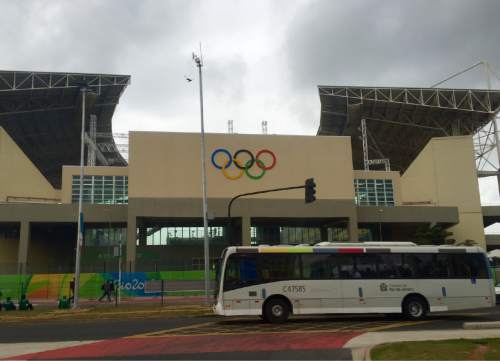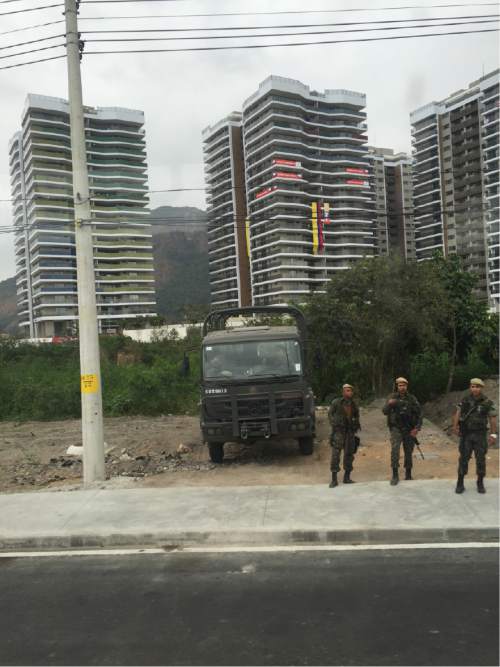This is an archived article that was published on sltrib.com in 2016, and information in the article may be outdated. It is provided only for personal research purposes and may not be reprinted.
Rio de Janeiro • I won't pretend to know anything about this scrambling city, which obviously is very much under the microscope. But the hour-something shuttle ride from Galeão International Airport to the media village — tucked up against one of the landscape's endless tropic hills — seemed to be an appropriate christening for a first-time visitor.
There were only seven of us riding on this shuttle so nice it regularly turns heads on the streets of Rio de Janeiro. Eight if you include our bus driver, José, who never spoke a word, who only honked once, who booked it to get us to the Barra village in just over an hour. Upon crossing a bridge just outside the airport, you come across a small cluster of fishing boats. Some are anchored 10 feet out in the water, others on shore, being worked on by old men in short shorts whose button-up shirts remain all-the-way unbuttoned.
The shuttle took so many twists, turns, U-turns, sharp lefts and rights that it was hard to keep up. The waterways looked the way they look on TV or in photos: Dark, dirty, hosts to a floating bevy of trash, and who knows what else. The floating nets, designed to keep debris at a minimum, are seen at certain points on this ride. Soccer fields flood every street, to absolutely nobody's surprise.
Artificial turf, grass, dirt — all surfaces featured on this inaugural drive through Rio. One of the nicer fields you come across happens to be just a few feet away from a sizable array of solar panels. The police presence grows the further you get into the city. Some cops are zipping by, sirens and lights full blast. Others post up at intersections, joking with one another while looking at their cell phones.
At one point, a police car filled to the brim drove by us with the officer in the passenger seat wolfing down what looked to be a late breakfast. Minutes before, a motorcyclist nearly ran into our side while he was refreshing his Instagram app on his phone.
The immediate magnitude of poverty isn't lost, either. Some brick houses, which stack higher and higher up these hills, continue on for a few miles. That's on the right side of the bus. Out to the left is the shiny new Olympic track and field venue. It stands out. Turn back to the right, and you'll see two kids in soccer jerseys kicking a ball on a rooftop beneath a clothespin line.
As you creep closer to the Olympic heartbeat in Rio, you drive by more trucks filled with soldiers, equipped with their automatic rifles. One open-ended Jeep features a soldier who seems to be on high-alert, scanning the roadways with his gun at the ready. Soon enough, you're passing venues for events like cycling, field hockey, tennis, gymnastics and basketball. The Olympic buzz on this cloudy morning picks up. Camera crews run through TV spots. Athletes walk by and take photos. At the next red light, two young men wait on the corner to sell snacks to the halted motorists. One is wearing a Florida Gators cap. The other, an Argentina jersey. Messi was on the back. Even in Brazil.
José takes us on more loops around streets. We've just passed the hour mark. We now go by a car dealership selling Lexus, Mercedes Benz and BMWs. The 16-hour travel day is almost over. I fill out more paperwork to check into my room, but the key wasn't made yet. After 15 minutes, the key is handed to me, and I'm walked to the building I'll be staying for the next 18 days. I explain to the receptionist that this is my first time covering an Olympics. After I unpack, I test — just for good measure — the shower situation. Multiple journalists who checked into the village earlier this week wrote of shower heads that either fell off or simply didn't work.
The knobs for both hot water and cold water fall off when touched. As I'm leaning down to pick them up off the tile, the shower curtain falls on top of my head.
Obrigado.
-Chris Kamrani
Twitter: @chriskamrani





